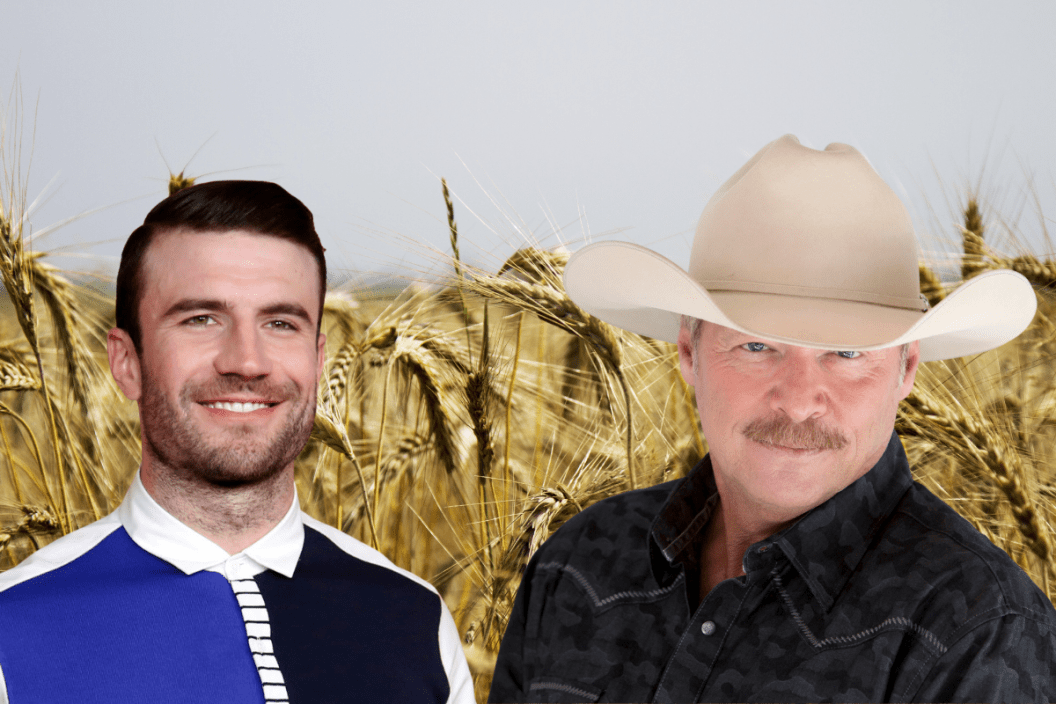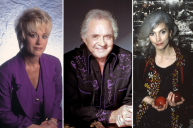Alan Jackson recently fanned the flames for those convinced that "real country music" is dead while promoting new album Where Have You Gone.
Videos by Wide Open Country
"It's like the 1980s again," Jackson said. "I'm 62 years old; I'm not some 30-year-old stud. It's not the same, but somebody has to bring it back, because it's not just people in their 50s, it's people in their 20s, too. All the kids and young people around my house? The older they've got, the more hardcore and traditional what they've leaned into has become. It's not old-school, it's the real school. And I'm kinda pissed off ... about what's happened to the format, or whatever they wanna call it."
He wasn't the first country singer in recent years to give the genre a poor bill of health. Loretta Lynn's comments about the state of country music on the Vocal Point With Martina McBride podcast grabbed headlines in 2020.
"They've already let it [die]," Lynn told McBride (as reported by People). "I think it's dead. I think it's a shame. I think it's a shame to let a type of music die. I don't care what any kind of music it is. Rock, country, whatever. I think it's a shame to let it die, and I'm here to start feeding it."
Even Kelly Clarkson wrote a eulogy, ironically getting the type that loses sleep over pop-country excited about someone with a No. 1 duet with Jason Aldean.
"You know why? Because country music doesn't sound country anymore...Country music is gone. Like, I don't know who's making it, but there might be like four people. Now it's like weird word rap," Clarkson said. "I love that when I started doing country they were like 'Oh, you're pop. You can't do country.' I was like 'I'm sorry, let me show you this list of the Top 20,' which by the way did not include one female."
McBride, Reba McEntire and others' laments specifically target the lack of sonic and social diversity on country radio--a more valid argument that's at the heart of what makes sweeping claims about country music's demise objectionable.
To be fair, Jackson and Lynn certainly have deep insight into what's changed in the genre, and speaking their minds is part of both Country Music Hall of Fame members' appeal. Shoot, everyone's entitled to their opinion about something as subjective as whether or not what's coming out of Texas, Tennessee and other musical hotbeds now measures up to old favorites.
Those opinions become ahistorical and downright annoying when they dismiss current country artists on the basis of so-called "authenticity," oftentimes because today's music continues a longstanding tradition of outside influences shaping a modern country sound.
"Authenticity" gets the condescending quotation mark treatment here because it's always been a marketing ploy. An artist considered by many to be country music's first star, Fiddlin' John Carson was promoted nearly 100 years ago as a bumpkin despite having lived for years around Atlanta's modern conveniences. The machine behind him wanted to impress both rural folks and Carson's fellow city slickers that'd moved from the farm to a mill village.
There's parallels between how and why Carson got presented as the embodiment of rural values and the likes of Thomas Rhett, Luke Bryan and Florida Georgia Line doubling down in song that they are indeed country. (Gosh, it's as if those slayers of all things right and pure about Nashville might've taken a cue from a subjectively better song titled "You're Lookin' at Country!")
Claims that some unidentified force let country music die at some unspecified point in the 21st century often have a lot to do with what Clarkson calls "weird word rap." Sure, it makes sense that people who only subscribe to half of the old "I listen to all music except country and rap" cliche would avoid today's stars aside from Miranda Lambert, Chris Stapleton, Eric Church and a handful of others. But why is it that the "real" ones got to incorporate jazz (Willie Nelson), blue-eyed soul (Charlie Rich), R&B (Ronnie Milsap), gospel (The Oak Ridge Boys), classic rock (most of your '90s faves) and the pop music of their time (a long list highlighted by Glen Campbell and Barbara Mandrell), yet more modern influences somehow killed an entire genre?
There's one thing we can all agree on when talking about country music: much of its audience value the roots of their raising. But what if I told you that Rhett, Bryan and the Georgian in FGL make music that lines up with my rural experience? During my high school days in Northwest Georgia, you'd be as likely to hear the latest joint by Master P or future country festival regular Nelly blaring from a jacked-up pickup truck as the familiar chorus of a Garth Brooks or George Strait song. We're all close enough in age that I assume that guys like Sam Hunt, Cole Swindell and others from small towns in Georgia knew the same kinds of rednecks, and that influenced their visions of where country music should go next. (This surely happened well beyond the Georgia state line circa 2001. I'm just tying this observation to personal experience.)
Really, it's no different than Travis Tritt and other fellow Georgians coming of age with not just Merle Haggard and George Jones but also The Eagles, Lynyrd Skynyrd and other rock acts with a tinge of twang and incorporating both sets of influences into their own sound. (For whatever it's worth, I prefer Tritt and his musical diet over most of the current artists I'm defending, but that doesn't mean I get my nose out of joint about what gets labeled nowadays as country. Focus on what you like, not what others desperately need to know is beneath you.)
Read More: Premiere: Shannon McNally Puts a New Spin on Waylon Jennings' 'Only Daddy That'll Walk the Line'
And while we're talking about older music, the idea that some country acts are "hardcore" (focused on more traditional instrumentation and lyrical topics) while others are "soft-shell" (pop-influenced) dates back to the early days of the genre. As country music scholar Amanda Martinez wrote on Twitter last summer, Roy Acuff replaced a pop-country trio by the standards of the time, The Vagabonds, as the Grand Ole Opry's top insurance pitcher.
There is no more tired claim than ?real country? is dying, and it?s one that?s existed as long as country music itself. For instance, back in the 1930s Roy Acuff replaced the ?pop? country group the Vagabonds as the most popular act on the Opry. pic.twitter.com/aKBQAEEcBd
— Amanda Marie Martinez (@Amammartinez) July 15, 2020
Lastly, the current reckoning with the country music industry's horrible track record with racial and gender identity equality makes longing for the good old days tone-deaf. I don't know what's in Jackson or the Coal Miner's Daughter's hearts, but it's doubtful that either have a mean bone in their bodies when it comes to underrepresented voices in the genre. If anything, they have rooting interests: Jackson for collaborator Caylee Hammack and Lynn for Tara Thompson and other kinfolks. That said, it's regressive on many levels to deem the country music business dead at a time when many journalists and academics' best work--plus the undeniable talents of Chapel Hart, Brooke Eden and others that don't look or love like most classic artists--might someday help clear a path for the genre to represent a much broader and more accurate range of country people.
(Do note that the sweeping changes needed beyond what's on the charts or the airwaves is a whole separate opinion piece.)
Now Watch: 10 of Charley Pride's Best Songs
https://rumble.com/embed/u7gve.vddiib/




